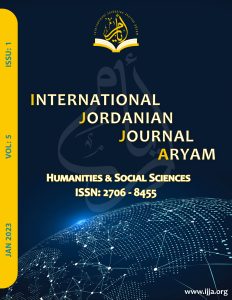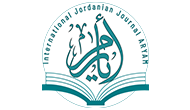Received: 09-06-2023 Revised: 11-06-2023 Accepted: 04-09-2023
Abstract: This research comes within an applied linguistic framework. It aims to explain the role of Arabic dialects in empowering the non-Arabic speaking learner with linguistic and metalinguistic competencies, by discussing a new concept called “teaching integrated Arabic.” In order to activate it, we explain the theoretical and scientific foundations that defend the inclusion of Arabic dialects in linguistic programs after they have been excluded. In its general purpose, the research aims to contribute to an attempt to modernize programs for teaching the Arabic language to non-native speakers in accordance with scientific requirements related to the theory of “integrative Arabic”, in order to meet the learner’s needs, which are mainly represented in: obtaining linguistic, communicative and cultural competence, and in overcoming what hinders his complete immersion in the Arabic environment.
IJJA is a Humanities and Social Sciences publishing journal committed towards providing a platform to outstanding scientists and researchers to exhibit their findings for the furtherance of Humanities and Social Sciences.
The International Jordanian Journal, Aryam Journal of Humanities and Social Sciences (IJJA) (ISSN print: 2710-3005), (ISSN Online: 2706 – 8455) welcomes high quality contributions investigating topics in the fields of Humanities and Social Sciences .
![42cd5crossreff[1]](https://aijj.org/wp-content/uploads/2023/04/42cd5crossreff1.jpg)
![6357copenaccsess[1]](https://aijj.org/wp-content/uploads/2023/04/6357copenaccsess1.png)
![97aa6road[1]](https://aijj.org/wp-content/uploads/2023/04/97aa6road1.jpg)

